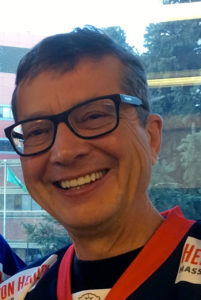I purposely chose the title of this article to make you curious. How did I do?
Perhaps your interest is peaked whenever you encounter something pertaining to healthy living. Or maybe you are seeking to avoid death at all costs and are strongly motivated to obtain information about anything that may hasten your own demise. Whatever peaked your curiosity, I guess it’s working so far…
Of course, no one has actually died of a curiosity deficiency, but I’d like to explore the possibility that curiosity levels might actually serve as important indicators of the state of our physical and spiritual health.
To be curious means to look beyond the obvious, and to break free of the confines of the immediate. A curious individual has found the freedom to wonder about things. This is an intellectual endeavor that requires a higher level of cognitive function:
- Why do my tomatoes grow better on this side of the house?
- Where did the idea of money come from?
- What would happen if I added strawberries to this dessert?
Being able to ask the right questions can unlock areas for further exploration that can not only make you a better gardener or cook, but can lead to deeper and richer experiences.
In my professional life, I have found that a healthy dose of curiosity can also greatly enhance my effectiveness in my role as a physician. Consider the following encounter that I had recently in my clinic:
“So, Mrs. White, you have had this same bowel problem for years. I wonder why are you are coming to see me about it today?”
“Well, doctor, my next door neighbor has the same symptoms as me and was recently diagnosed with bowel cancer. Do you think I have bowel cancer, too?”
 There it is – an example of how asking the right question can get to the heart of the matter. Without the knowledge of what was really bothering Mrs. White, I might have focused on diet, laxatives and exercise. While that might have made me feel better, it would not have addressed the real reason she came to see me that day. Instead, our conversation took an entirely different path. We discussed her risk factors for bowel cancer and some simple testing that would set her mind at ease.
There it is – an example of how asking the right question can get to the heart of the matter. Without the knowledge of what was really bothering Mrs. White, I might have focused on diet, laxatives and exercise. While that might have made me feel better, it would not have addressed the real reason she came to see me that day. Instead, our conversation took an entirely different path. We discussed her risk factors for bowel cancer and some simple testing that would set her mind at ease.
Curiosity is an important tool in my doctor’s bag. “What do you really mean by stress?” “How are you coping with being alone, now that your spouse has died?” “What do you mean by ‘eating healthy’?” These probing questions can often provide information that point to the subtle signs of physical and spiritual disease.
Albert Einstein once had this advice for young people: “The important thing is not to stop questioning. Curiosity has its own reason for existence. One cannot help but be in awe when he contemplates the mysteries of eternity, of life, of the marvelous structure of reality. It is enough if one tries merely to comprehend a little of this mystery each day.[1]”
I find that my own curiosity levels fluctuate greatly during different seasons of my life. At times, I find myself in a mindful state where I am able to maintain a sense of wonder about the world around me. I find myself curious not just about facts and knowledge, but also about ideas and people. “How did that couple meet? “Why does she seem so peaceful today?” “Where did that person learn to become such a great teacher?”
But there are many other seasons in my life when I am simply not curious at all. I go through my days boxed in, looking for quick solutions, seeking only to get through all of the tasks in my schedule unscathed. In reflecting on these times, I have found that fatigue, over-commitment and worry are real “curiosity killers”. It turns out that these factors are also directly implicated in the development of stress, which is known to have deleterious effects on our physical, mental and spiritual health.
We often assess our health by asking ourselves crucial questions about factors such as diet, exercise and flossing. Perhaps a more powerful question is to simply ask, “Did I learn something new today?”
[1] “Old Man’s Advice to Youth: ‘Never Lose a Holy Curiosity.'” LIFE Magazine (2 May 1955) p. 64”









Thanks. I have anhedonia, and can get little information on my lack of joy and curiosity. This answers a lot of questions.